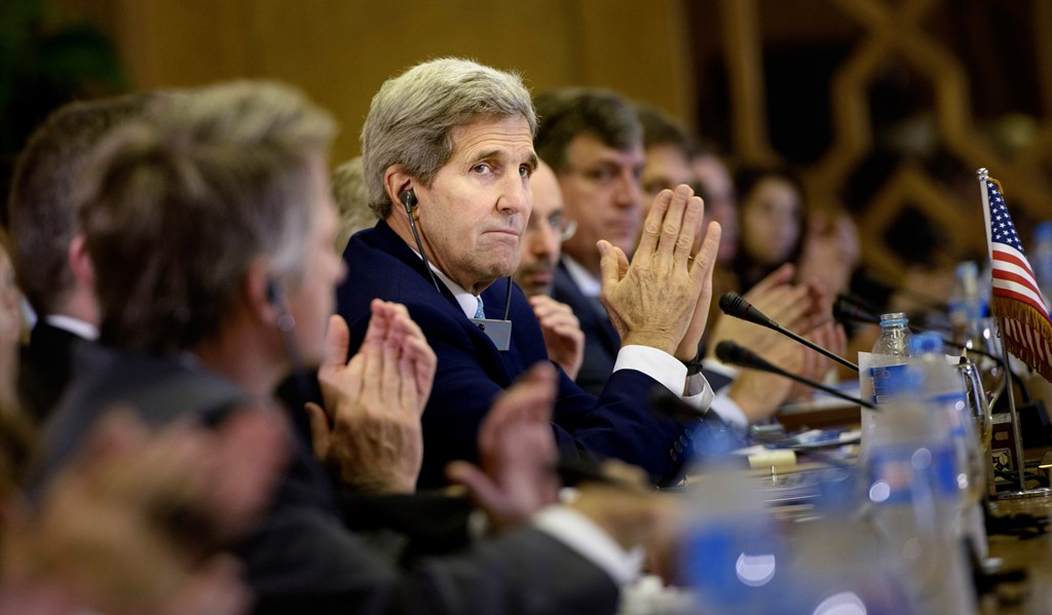Editor's Note: This piece was coauthored by Emeritus Prof. Raymond Tanter.
The announcement of a preliminary nuclear deal with Iran – the Joint Comprehensive Plan of Action – touched off fierce discussion in Washington over the nature of the accord and how Congress should evaluate it.
The Iran Nuclear Agreement Review Act of 2015 requires robust congressional oversight of the agreement prior to implementation and affords legislators an unusual opportunity to critique the deal and raise issues that may undermine effective implementation.
The emerging bipartisan opposition to the porous deal centers on six primary concerns:
- Nuclear Breakout: The preliminary nuclear agreement maintains and legitimizes Iran's nuclear infrastructure, with some caps for the next 10 to 15 years. But it allows the regime to build an industrialized nuclear program with few limitations in about a decade. Under the agreement the time to nuclear breakout is neither reduced nor is the goal of a nuclear weapons free Iran realized.
- Managed Access: The agreement fails to provide unfettered – anytime, anywhere – access to suspect nuclear sites, including military installations. Managed access might work in declared sites but not in secret ones. In fact, two years of negotiations yielded not a single specific arrangement to inspect sites that have already been sought by the UN nuclear watchdog agency, the IAEA.
- Research & Development: Neither is the regime prevented from research and development on advanced centrifuges. The managed nature of access that is granted undermines the very purpose of the inspections in the first place. This is like allowing professional athletes with a record of cheating to control the circumstances that govern their testing for controlled substances.
- Sanctions Relief: The enormous infusion of currency that will arrive with the lifting of sanctions will boost Tehran’s support of terror proxies and embolden them to expand their violent arc of influence.
- Weapons and Missiles: The existing agreement provides weapons and missile trade relief in five and eight years respectively, concessions that will consolidate the regime’s influence in the broader Middle East.
- Past Activities: Finally, the regime has not been pressed to account for its past nuclear activities. Verification of future agreements becomes ever more challenging when no credible baseline for weaponization thresholds crossed exists.
Recommended
Policymakers concerned by these – and myriad other issues – can use the oversight period to direct questions at White House officials and insist on credible explanations. Questions that must be raised and addressed include:
- In light of Tehran’s record of cheating, how will world powers account for the need to verify Iran’s continued compliance? And since incremental cheating to test the resolve of the powers is more likely than a full-scale race for the bomb, how will the major powers guard against such sneakout?
- Will Washington push back on Tehran’s activities in Iraq, Syria, Yemen, Lebanon, and elsewhere in the region?
- Because ballistic missiles are most relevant against populations rather than armies, how will the U.S. address Tehran’s ballistic missile capabilities once an agreement is in place and what will this mean for key U.S. allies?
- Because Iran has used scarce funds despite falling oil prices and sanctions, how will the White House prevent Tehran from diverting funds to regional proxies and terrorist groups after sanctions are lessened?
- Will U.S. officials speak out on behalf of Iranian dissidents – thousands of whom are detained in Iraq at Camp Liberty – and provide for their protection in light of the extraordinary intelligence they have provided on the nuclear front?
- When will the American diplomats finally condemn Tehran’s egregious human rights violations?
As Congress digs into the agreement, they should keep in mind that:
- The regime is not a permanent fixture of the Middle East landscape. The false dichotomy of war and negotiation is useful rhetoric but it makes for bad policy.
- History suggests that cosmetic diplomacy with dishonest partners is a recipe for proliferation not peace.
- Appeasement and concessions are not the ingredients for a sustainable peace. They only embolden authoritarian leaders and create a more hostile climate.
The president has asked that the nuclear deal be judged on its merits. Congress can showcase the bipartisan frustration of having its concerns repeatedly dismissed as negotiations dragged on by increasing the level of scrutiny during the mandated oversight period. The Joint Plan of Action is also deserving of enhanced attention by foreign policy experts in America and around the world.
Legislators must also not allow the White House to dictate the terms of the public deliberation on the nuclear issue by separating the nuclear accord from simultaneous discussions of the regime’s human rights record, sponsorship of global of terror, and the destabilizing influence Tehran continues to play regionally.























Join the conversation as a VIP Member